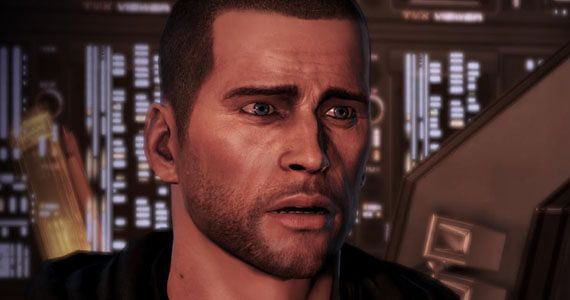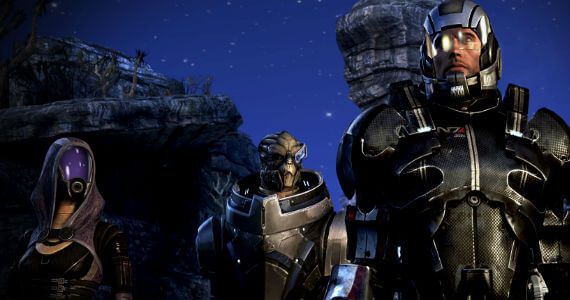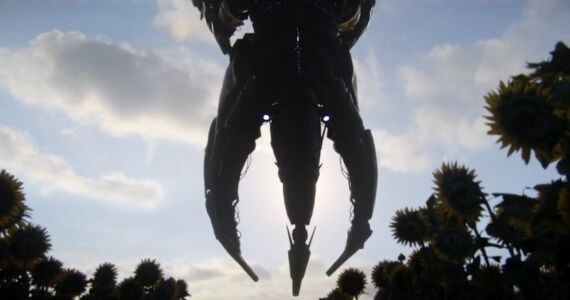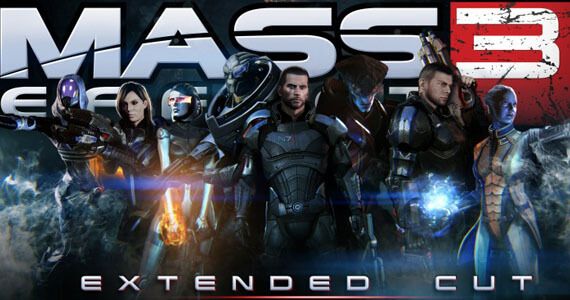Rather than getting swept up in the controversy and cupcake-baking of the most devoted and vocal Mass Effect 3 fans, allow us to offer a level-headed, calm explanation for why a much better ending to Mass Effect 3 is something that is desperately needed. A new (extended) ending is coming, but the need for it is still being debated, online and elsewhere.
Don't expect personal attacks or outrage, since there are few corners of the Mass Effect universe that I have not plunged into and examined head-first. Having played through Mass Effect more than half a dozen times, read every novel in the series - except that one - to gather the most out of Drew Karpyshyn's fiction, and powered through every batch of DLC for Mass Effect 2, my hopes for ME3 were justifiably high. Having spent well over 300 hours with Commander Shepard places me in the camp of those demanding the most from the end of the trilogy. And most disappointed.
BioWare began by delivering what felt, at the moment, like a slap in the face - and still does - when thousands of fans sat down with their copies after midnight on launch day to find that: "Whoops, we're not supporting the ability to import your Shepard's face. Make a new one." The mind-boggling error should have sent a clear message that satisfying the most devoted of Mass Effect fans wasn't the team's top priority wherever possible. But instead of being heartbreaking and disappointing, the majority of the game's campaign delivered on the highest of promises.
It's important to explain that the exact plotting of events that the ending revolves around is not the issue. Facing the player with a bittersweet climax was the developer's intent, and while many wished for a happy ending for Commander Shepard, an ultimate sacrifice is not a problem in itself. The issue is with the way that ending was relayed to the player, and just how many incredibly obvious questions were never addressed. Instead of saying "here's how what you did changed the universe," the writers of the game simply said "we're done showing you how you impacted events."
In my playthrough, distrust of all Reaper technology led Commander Shepard to decide that the universe would only be safer if they were destroyed. A large explosion ensued, turning the invading forces into hulking scrap heaps, and destroying the network of Mass Relays. This is where the game, as has been claimed elsewhere, falls apart.
In my particular playthrough, the characters I had selected to accompany Shepard into the final assault on the Reapers were magically transported from Earth - presumably dead - to stepping off the Normandy stranded on an unnamed Jungle planet. Before anyone attempts to defend the possible variables at play, the fact remains: two deceased characters came back to life, because a scripted cut-scene was completely detached from the player decisions that led to it. Considering the fact that said cut-scene was the final image of a three-game series, this blunderous error is simply unforgivable.
Then the questions begin to arise. It seemed the decision to wipe out the Reapers, as the hologram-child explained, also meant wiping out Shepard and the similarly sentient Geth. Were they actually eradicated? Was EDI? Where did that impact begin and end? Did the decision to wipe out The Geth helping the Quarians rebuild a new civilization destroy those chances? Would the Quarians be able to survive without help?
Then it became clear that a vast array of alien militaries were now in orbit around Earth, with no way of returning home. How could this twist of fate change the future of these civilizations? How could Rannoch be formed without what seemed to be a majority of the remaining Quarian ships? Are these aliens doomed to starvation and death? These questions may be interesting to ponder, but the player's attention is never drawn to them by the storytellers themselves. Mass Effect 3's only concern is showing the exact results of Shepard's defense of Earth, in the broadest and vaguest of terms. The fans needed an ending, and the story ended - or rather, stopped being told.
Page 2: Why The Mass Effect 3 Ending is Problematic...
This is the essential issue with the decreased emphasis on player choice that BioWare adopted for Mass Effect 3. The previous two games had followed a similar outline: face Shepard with a choice to either risk lives or play it safe, and show the results of each. In some cases, characters even returned to show just how much that decision had shaped the galaxy. While the greater plot may have kept moving in the same direction, the player's choices got people killed, or kept them safe. And to truly teach the player just how morally gut-wrenching those choices should be, the good and bad of each were shown.
For Mass Effect 3, the choices were similarly posed: would Shepard grant Jack's wish and keep her recruits safe defending bases, or risk their lives for their biotic abilities, sacrificing friendship in the process? Could Legion be trusted, or would the Geth threat be removed permanently? These were the choices Shepard was forced to make, and make them he/she did.
And that was it. The doubts and risks inherent with each choice were never mentioned or shown again, making the player's investment relevant only in the exact moment of the dialogue option. Similarly, the presence of each alien army and past crew member began and ended with them simply showing up before the battle. The decisions may have been rewarding enough in the previous games, but for the climactic battle, the lack of impact simply lessens the actual conclusion.
After years of telling fans that bringing a satisfying end to the story was BioWare's top priority, the writers left dangling story threads half-resolved, and hoped players wouldn't notice. Or, that they'd be willing to dream up a conclusion for each of their favorite cast members themselves.
Mass Effect 3's lead writer, Mac Walters, has tried to spin the team's acknowledgment that questions were left unanswered so wildly it's nauseating, and it's not fooling anyone. It also seems that Admiral Hackett will be appearing in the Extended Cut DLC. Most likely to supply a voice-over for the epilogue, which already seems far more fitting than the whimper of an epilogue currently contained in the 'Stargazer' dialogue.
In truth, the very fact that the Extended Cut adds variations instead of gameplay is all but an admission that the creative team dropped the ball. The new ending won't be adding new levels, or changing the circumstances of the ending, only expanding "on the variety of consequences of player choices and degrees of success. So, with the new content, the player’s choices should result in a much more varied experience." In other words, the exact things that fans felt should have been present in the first place, and are now being added free of charge. It's hard to think of a clearer way for BioWare to admit that the fans are at least justified in demanding a more complete ending.
For the most poignant evidence, simply read the forum post allegedly written by ME3's writer Patrick Weekes. Even if the post was a forgery, the fact that an anonymous internet user could construct an ending that would have been more befitting a climactic send-off shows just how massively the developers flubbed the finale.
Leading game developers have backed BioWare for their right to tell the story they want to, and not be so directly swayed by fan outrage. While there are aspects of that which should always be true, again we'd clarify that the ending of the game isn't the problem, but the poor way it was executed and communicated.
A good story is only as good as its teller, and leaving out key cut-scenes and payoff battle shots - which apparently were in the game at one point - undercut most of the ending's impact. The principles that the series and final game were constructed around, and spent most of their time exploring - friendship, organic and synthetic life, and the uniting of alien races - are given the slightest of nods and lip service.
It's the failure of the ending to conclude anything that is likely the reason for the popularity of the now-infamous 'Indoctrination Theory.' The current ending of ME - Shepard possibly dead, possibly alive, crew shipwrecked, Earth damaged to an unknown extent, and the galaxy's populations scattered - isn't much of a conclusion, more a mess of cliffhangers and "what ifs." If the ending isn't really ending or concluding anything, than at least the Indoctrination Theory adds something interesting to the lack of closure.
Does Mass Effect 3 "need" a new ending? Technically not. It's already sold most of the copies it ever will, and the damage and disappointment done to the series can't be undone. But the fans' solution is extremely doable, fairly obvious, and something the developers clearly felt was necessary to release at this point.
We won't know how simple it was to rectify the original mistakes, or how badly BioWare may once again bungle things, until the Extended Cut releases this week.
-
Leave us your thoughts on the ending of Mass Effect 3, and be sure to read Anthony Taormina's case for Why Mass Effect 3 Doesn't Need A New Ending.
[poll id="42"]
Follow me on Twitter @andrew_dyce.





